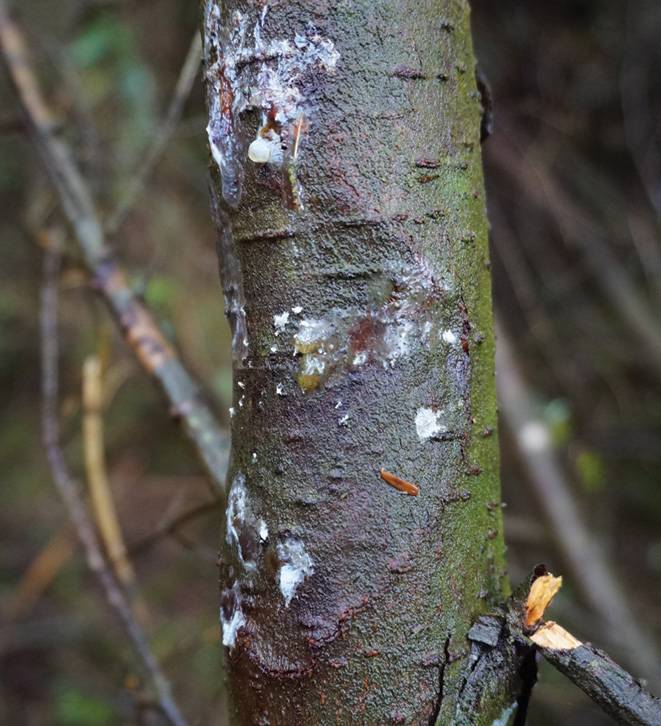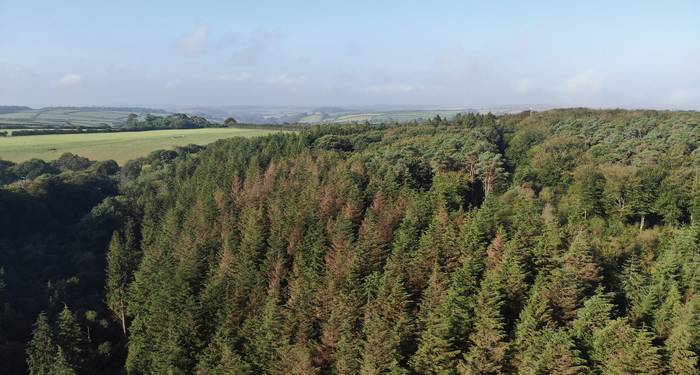Scion diagnostic used in English disease detection

The first occurrence of the pathogen Phytophthora pluvialis in Europe was discovered in Cornwall, England in August 2021, thanks to a diagnostic test developed at Scion.
Staff from England’s Forestry Commission were surveying forests in south-west England for the presence of another Phytophthora disease, Phytophthora ramorum, when they discovered decline in a stand of western hemlock trees. The affected trees showed crown dieback, needle drop, branch and stem cankers. Both mature trees and the naturally regenerated understory were affected.
Dr Ana Pérez-Sierra from the Tree Health Diagnostic and Advisory Service at Forest Research says they worked quickly to establish the potential cause of the decline in this stand of trees, to ensure that any required control measures were put in place as soon as possible. Using a quantitative polymerase chain reaction (qPCR) diagnostic test developed at Scion several years ago, they identified P. pluvialis. This was confirmed with DNA sequencing of samples tested in the UK and further confirmed by analysis at Scion.
To assist their English colleagues as quickly as possible, Scion microbiologist Dr Rebecca McDougal sent a newly developed qPCR assay for P. pluvialis to Dr Perez and her team. She says the development of this new assay had only been completed weeks before.
“It has 10 times the sensitivity of the previous test which means that it can detect extremely low levels of the pathogen in a sample. This is crucial for early detection of a disease outbreak,” she explains.
This new highly sensitive assay is now routinely used in New Zealand to help detect Phytophthora pluvialis which causes red needle cast in radiata pine and Douglas-fir. The collaborators from Scion, Oregon and Forest Research UK will work together to publish the diagnostic assay, with its validation from these overseas forests.
Dr Pérez-Sierra says, “We have benefitted greatly from ongoing collaboration with colleagues in New Zealand and Oregon who have been working on P. pluvialis, developing diagnostic tests and other assays that are now in routine use in our laboratories.”
The test was developed by Dr Rebecca McDougal, Renelle O’Neill and Luciano Nunes Leite from Scion’s ecology and environment team as part of the Resilient Forest Programme through Scion’s Strategic Science Investment Fund (MBIE) and the Forest Growers Levy Trust.

